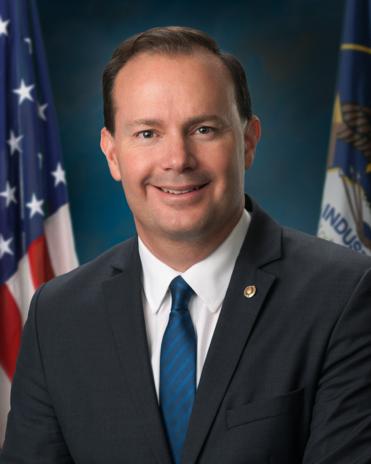The top officials at Kroger and Albertsons tried on Tuesday to assure senators worried about food prices and industry consolidation that consumers will benefit from their supermarket giants' proposed $24.6 billion merger.
“We will not close any stores, distribution centers or manufacturing facilities or lay off any frontline associates as a result of this merger,” Kroger CEO Rodney McMullen told senators.
Sen. Amy Klobuchar, D-Minn., chaired the hearing before the Senate Judiciary Committee's subcommittee on competition policy on the proposed merger, which would combine two of the largest grocery store chains in the country. It would include Kroger stores and those owned by Kroger, including Harris Teeter and Fred Meyer. Albertsons' stable of stores includes Safeway, Shaw’s and Vons.
Together, the companies employ more than 710,000 people and operate nearly 5,000 stores, 66 distribution centers, 52 manufacturing plants, 3,972 pharmacies and 2,015 fuel centers, they said in announcing the merger.
McMullen's pledge, which was echoed by Albertsons CEO Vivek Sankaran, came after Klobuchar's opening statement, where she warned that when "two stores are operated by the same owner, there’s no incentive to compete for customers and prices. They might even close one of the stores, and that, of course, eliminates jobs in these communities."
 Sen. Mike Lee, R-Utah
Sen. Mike Lee, R-UtahThe subcommittee's top Republican, Mike Lee of Utah, also raised concerns about food prices in his opening comment. “Inflation is wreaking havoc on our economy," he said. "But not on the grocery industry, it appears." He quoted McMullen as saying earlier this year, "A little bit of inflation is always good in our business."
"Well, it must have been very good this year, as Kroger has now amassed enough to spend $24.6 billion to buy up one of its largest competitors, Albertsons,” Lee said.
McMullen, however, said the companies hold a “strong conviction that this merger will enhance competition, lower prices, improve the customer experience and create investments in our associates while securing the long-term future of union jobs.” He said Kroger’s fundamental business model is “built around lowering prices to attract more customers, rather than making higher margins on fewer customers.”
He said Kroger plans to invest $1.3 billion over the next four years in Albertsons stores to improve the customer experience, $1 billion to continue raising associate wages and comprehensive benefits and $500 million to lower prices.
In a statement, the United Food and Commercial Workers International Union (UFCW), which represents 1.3 million workers in grocery stores and meatpacking plants, said it would “oppose any merger that undermines the wages, jobs, benefits and security of Kroger and Albertsons workers.” UFCW did not take part in the hearing.
McMullen said the companies are in “active conversations” with both UFCW and the Teamsters Union. “We view the unions across the U.S. as incredibly important partners, and we will work together with the unions,” he said.
McMullen said Kroger ranks fourth in total revenue behind Walmart, Amazon and Costco, and the merger will help the new company compete. He said that even after adding Albertsons stores, the expanded business will remain No. 4.
“Those same three competitors have nearly three times the share of grocery sales of Kroger and Albertsons combined,” he said.
Questioned by Lee, Sankaran defended the company’s previously announced decision to provide $4 billion to its shareholders, which dwarfs the $2.8 billion in income tied to the merger. “The Albertsons Companies is in an excellent financial condition,” Sankaran said, adding that the dividend payment rewards shareholders who have supported the company over the last decade.
Sumit Sharma, a senior researcher for Consumer Reports, said the transaction will result in less competition, “which will be bad for consumers.” He added that the claimed benefits of the merger are “uncertain."
McMullen, however, cited National Grocers Association research from 2021 to say that independent grocers accounted for 33% of overall U.S. grocery sales, up from 25% nearly a decade ago. Sales by independent grocers rose almost 94% from 2012 to 2020. “These stores will remain formidable competitors,” the Kroger CEO said.
Michael Needler Jr., on behalf of the National Grocers Association and president and CEO of Findlay, Ohio-based Fresh Encounter, which operates 100 grocery stores in Ohio, Indiana, Kentucky and Florida, said he’s concerned about what might happen to the industry if there isn’t proper oversight going forward.
 Vivek Sankaran, Albertsons CEO
Vivek Sankaran, Albertsons CEO“We're agnostic on the transaction," Needler said. "We're not afraid to compete against anyone, no matter how big. but what we do oppose is a lack of constraints on buyer power, which supports our ability to compete on price.”
In 2015, Albertsons acquired Safeway for $9.2 billion. As a condition for approving the merger, the FTC required Albertsons to divest 168 stores. When the largest buyer of the divested stores went bankrupt nine months later, Albertsons bought back some of the very same stores it had been required to give up in order to avoid violating the antitrust laws, Lee said in his opening statement.
Interested in more coverage and insights? Receive a free month of Agri-Pulse!
“The FTC official who signed off on that divestiture now runs the antitrust practice at the law firm representing Kroger in its purchase of Albertsons,” Lee said. “Hollywood couldn’t write a more cynical plot.”
Sankaran said what happened with Safeway stores was approved by the FTC and Albertsons did everything it could to help the distressed stores. “If you step back and look at the bigger picture, the merger by any measure is a success, where we put two companies together, one of them struggling, and turned them around.”
Although the FTC has not determined how many stores may need to be divested, it could range from 100 to 375. Sankaran said the FTC is examining potential divestures that could go to credible buyers, as determined by the FTC, that have the capability to take these stores and add to their franchise.
“We must learn from the failure of Safeway and Albertsons, meaning that the FTC must use a microscope on a market-by-market basis down to the street corner to ensure that the combination doesn't harm consumers or leave communities vulnerable,” Needler said, adding that divestitures should give capable local operators the chance to buy these divested assets.
Lee and Klobuchar both noted that although the Senate has no power to halt or change the course of the merger, it does have the ability to bring light to the discussion and the decision that now sits before the FTC.
“Simply put, hearings like this one are an important opportunity for the American people to better understand an economic transaction over which they have little say, but which so intimately affects their lives and livelihoods. That is certainly the case today,” Lee said.
Klobuchar and Sen. Chuck Grassley, R-Iowa, introduced the Merger Filing Fee Modernization Act in June 2021 to update the merger filing fees that haven't been changed in 20 years.
For more news, go to www.Agri-Pulse.com


